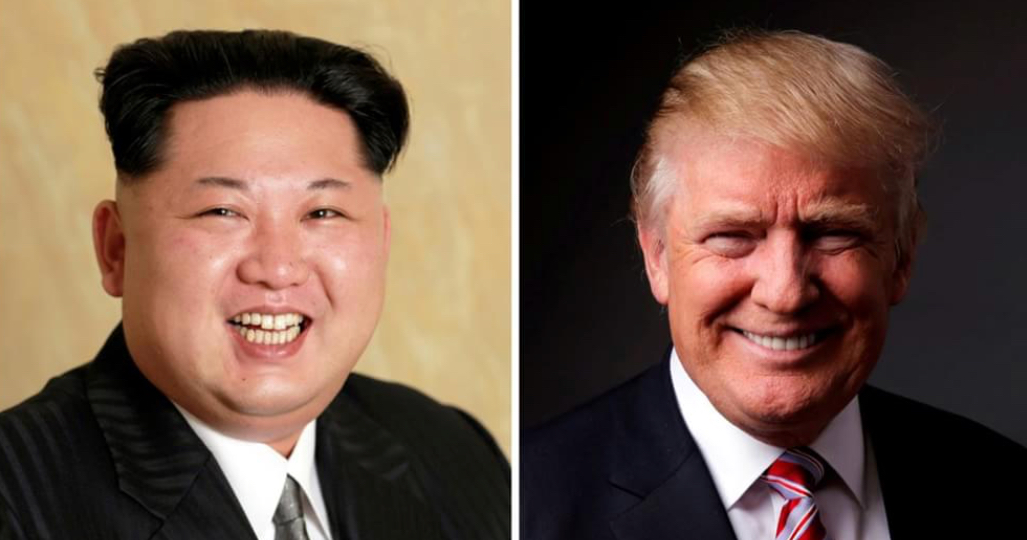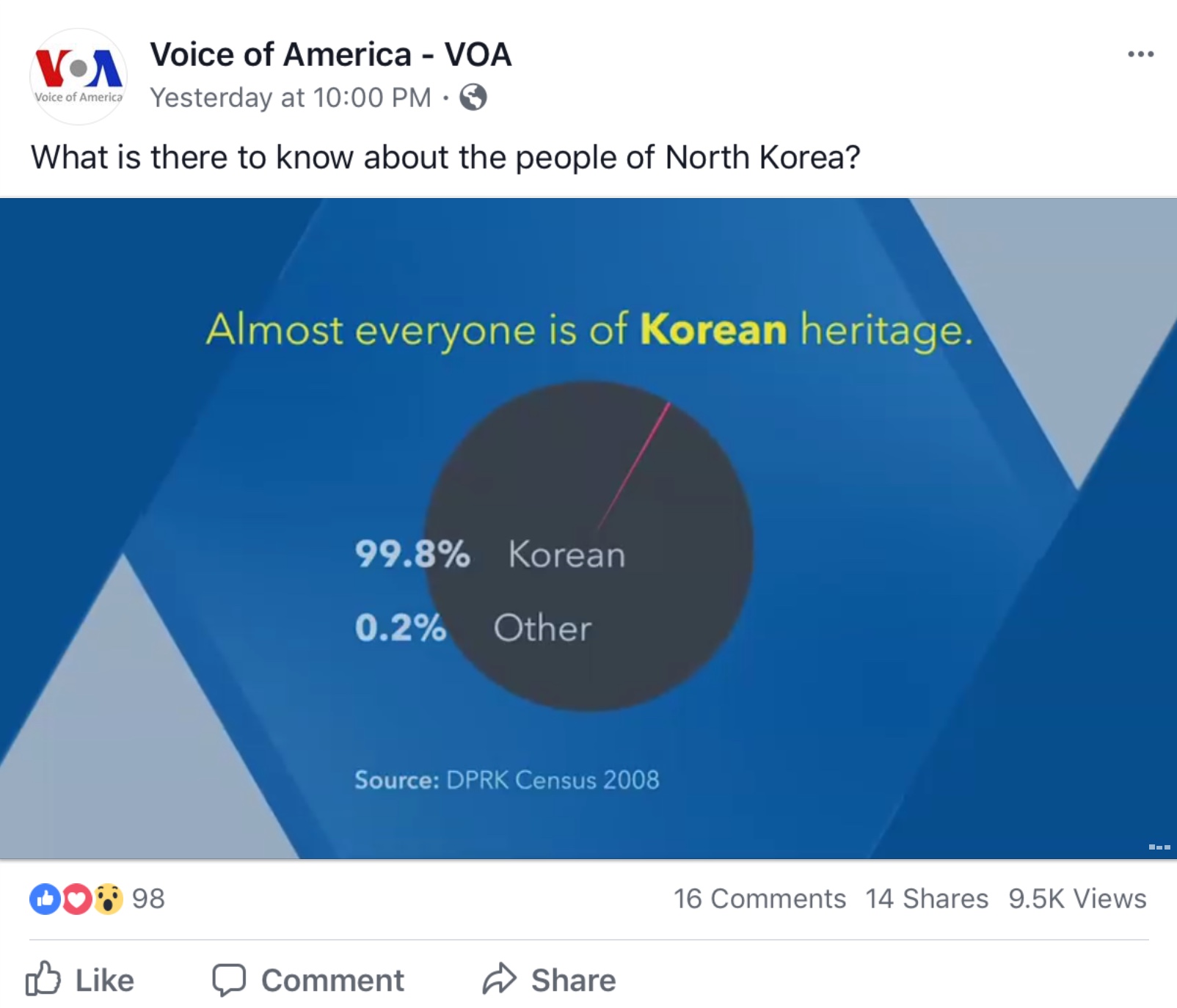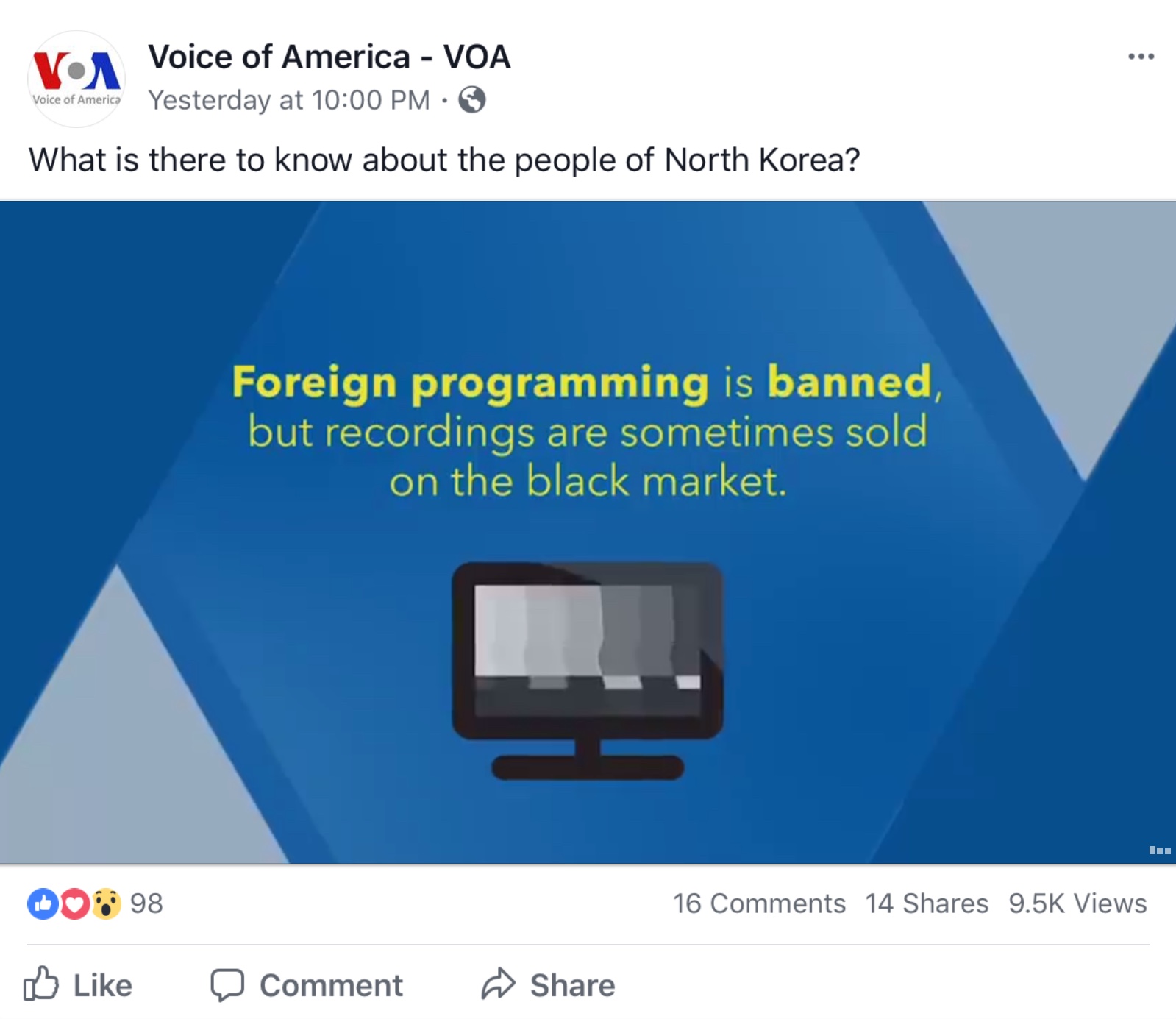BBG Watch Commentary
The surprise announcement that President Trump is planing to meet North Korean leader Kim Jong-un brings once again into focus some of the questionable journalism by the Voice of America (VOA) in which information about North Korea is presented in a naive, simplistic and selective manner, making it in essence propaganda for the North Korean regime.
Next to the Voice of America video hailed in a 2011 BBG press release, in which Pyongyang was described as a city “vibrant and busy with activity” and which liberally repeated North Korean propaganda with almost zero countering or balance, this latest VOA video sets, in our view—and in the opinion of some other people who have commented on it—perhaps a new record for naive, misleading, pointless, and ultimately dangerous reporting by the U.S. taxpayer-funded media outlet.
It’s not that the video does not include some partially accurate information. But this is exactly what makes it particularly harmful for the United States to be associated with such a “journalistic” media product. The most dangerous propaganda usually has close to 90-95% accuracy on raw facts. It’s not about what is presented in the VOA video in a highly simplistic manner but what is missing.
The VOA Facebook post for this video has very few comments, but some of them focus sharply on VOA’s shortcomings. We really wonder whether Broadcasting Board of Governors (BBG) CEO John F. Lansing, VOA director Amanda Bennett and deputy director Sandy Sugawara ever check on the VOA website and social media content. If they did, then perhaps they would take note of these comments and would do something about VOA’s reporting.
“This video is NK propaganda. Their people eat grass….”
“Tell us about the gulags.”
That’s what American taxpayers and many members of Congress of both parties think VOA should be doing using its public funding because that’s what VOA did in previous decades.
The Voice of America never produced such naive and simplistic news reports during the Cold War. If it did, it would have been compared to Radio Moscow and laughed at, just as some of the viewers of the latest VOA video on North Korea pointed out that it was in essence propaganda for the North Korean regime.



